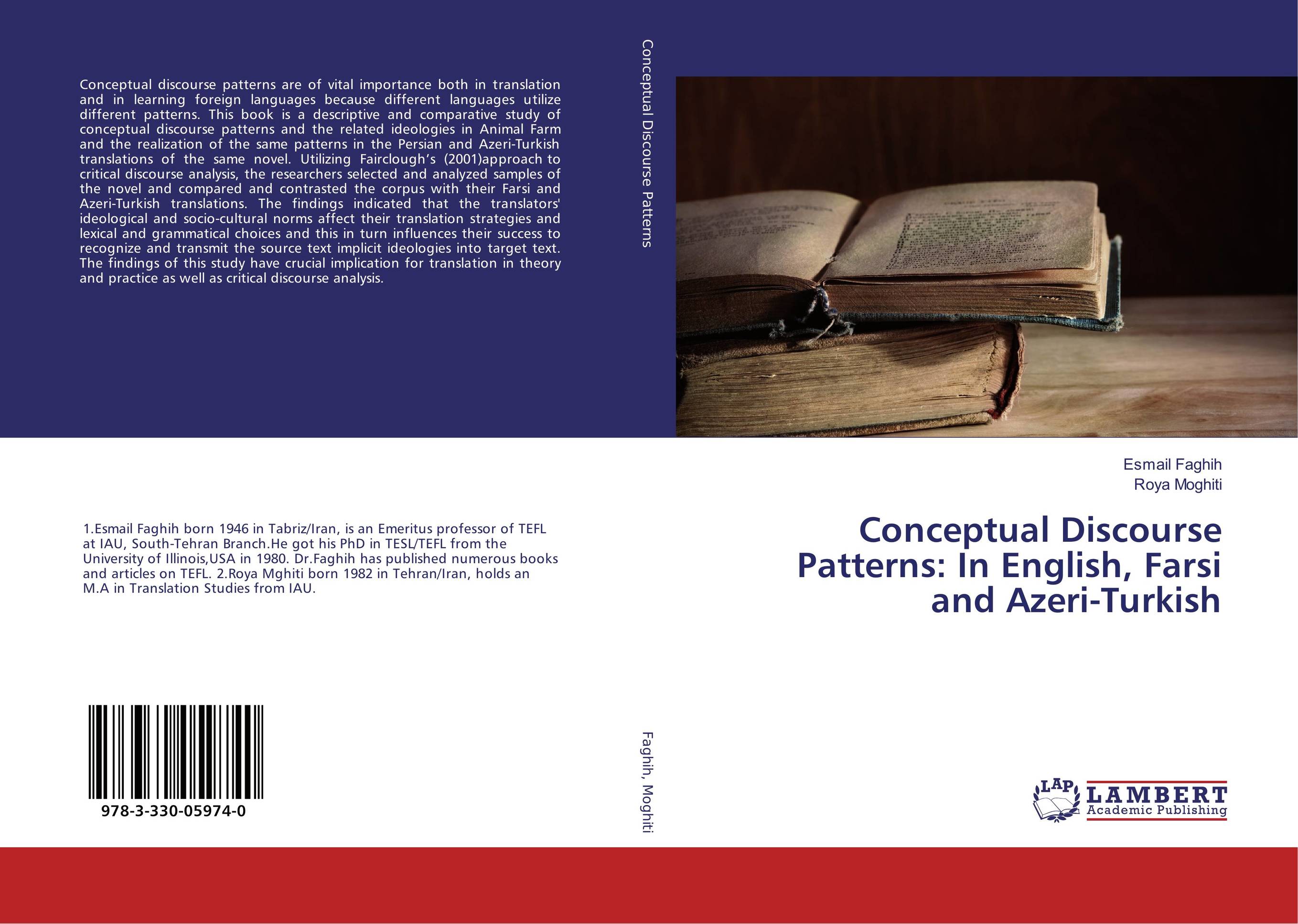| Поиск по каталогу |
|
(строгое соответствие)
|
- Профессиональная
- Научно-популярная
- Художественная
- Публицистика
- Детская
- Искусство
- Хобби, семья, дом
- Спорт
- Путеводители
- Блокноты, тетради, открытки
Conceptual Discourse Patterns: In English, Farsi and Azeri-Turkish.

В наличии
| Местонахождение: Алматы | Состояние экземпляра: новый |

Бумажная
версия
версия
Автор: Esmail Faghih and Roya Moghiti
ISBN: 9783330059740
Год издания: 2017
Формат книги: 60×90/16 (145×215 мм)
Количество страниц: 220
Издательство: LAP LAMBERT Academic Publishing
Цена: 43412 тг
Положить в корзину
Позиции в рубрикаторе
Отрасли знаний:Код товара: 170880
| Способы доставки в город Алматы * комплектация (срок до отгрузки) не более 2 рабочих дней |
| Самовывоз из города Алматы (пункты самовывоза партнёра CDEK) |
| Курьерская доставка CDEK из города Москва |
| Доставка Почтой России из города Москва |
Аннотация: Conceptual discourse patterns are of vital importance both in translation and in learning foreign languages because different languages utilize different patterns. This book is a descriptive and comparative study of conceptual discourse patterns and the related ideologies in Animal Farm and the realization of the same patterns in the Persian and Azeri-Turkish translations of the same novel. Utilizing Fairclough’s (2001)approach to critical discourse analysis, the researchers selected and analyzed samples of the novel and compared and contrasted the corpus with their Farsi and Azeri-Turkish translations. The findings indicated that the translators' ideological and socio-cultural norms affect their translation strategies and lexical and grammatical choices and this in turn influences their success to recognize and transmit the source text implicit ideologies into target text. The findings of this study have crucial implication for translation in theory and practice as well as critical discourse analysis.
Ключевые слова: English, conceptual discourse markers, Farsi, Azeri-Turkish



